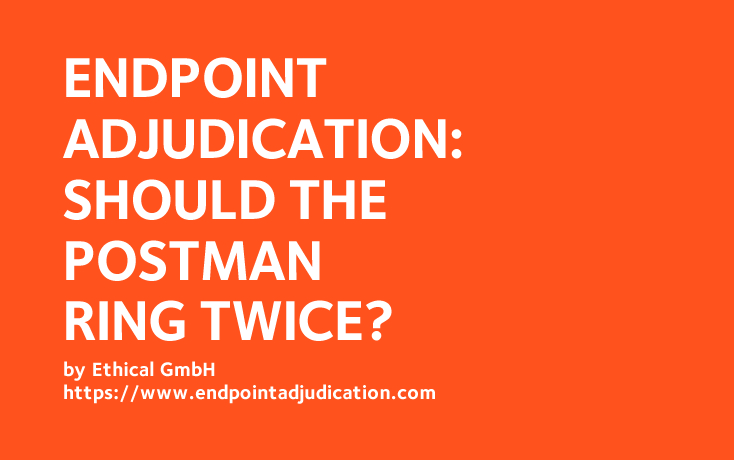Is it good or bad practice to revisit and re-adjudicate the same event twice? Will such practice introduce bias in the reviewers’ judgement? The question was recently asked by a subject matter expert involved in endpoint adjudication operations. Here is our response
Real life experience can be different from the book descriptions and when confronted with unusual practices, professionals may be wondering how to manage special cases.
We were recently asked by a clinical research professional if it is good practice to revisit events in the absence of new information (see Linkedin Group about Endpoint Adjudication).
Wouldn’t such actions introduce bias in the assessment? Indeed, a reviewer presented with an identical case twice could be either prone to come to the same conclusion without really reviewing the case or on the contrary, suspect some error in his/her initial assessment and decide to change it without any valid reason.
In usual conditions, in the absence of new information, there is no reason to request re-adjudication of an event that has gone through the normal adjudication process.
Indeed, such an operation could cause confusion and introduce bias. However random re-adjudication of already processed events does occur in the context of quality assurance. The operation can be triggered manually if no software platform is used or, more likely, automatically in the framework of a platform programming.
Already adjudicated events are regularly re-sent either to the same reviewer(s) or to different ones and the result is compared to the initial assessment. Depending on the case, the system is able to compute inter- and intra-variability and deduce the quality of work of the team of adjudicators. The purpose is not to criticize or reprimand any of the participants but rather to detect possible elements leading to uncertainty and therefore to varying conclusions.
Discussion with the committee, additional training, process improvements are some of the most frequent and most relevant actions to correct excessive deviation rates.
In order to avoid misunderstandings and frustration, the process of QA using re-adjudication must be agreed upfront and clearly documented in the adjudication charter.
DOWNLOAD NOW THE ENDPOINT ADJUDICATION HANDBOOK
The Complete Manual / Reference Book with all the topics related to the Independent Endpoint Adjudication Committees Management




